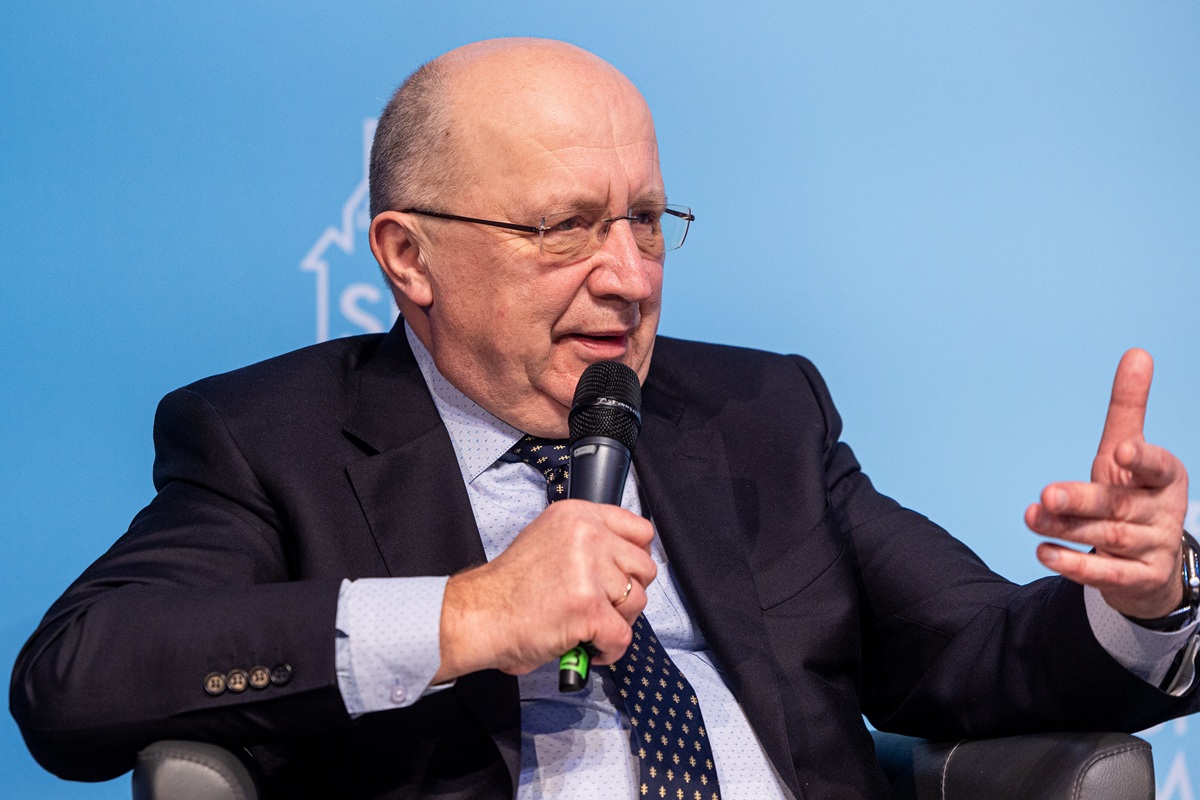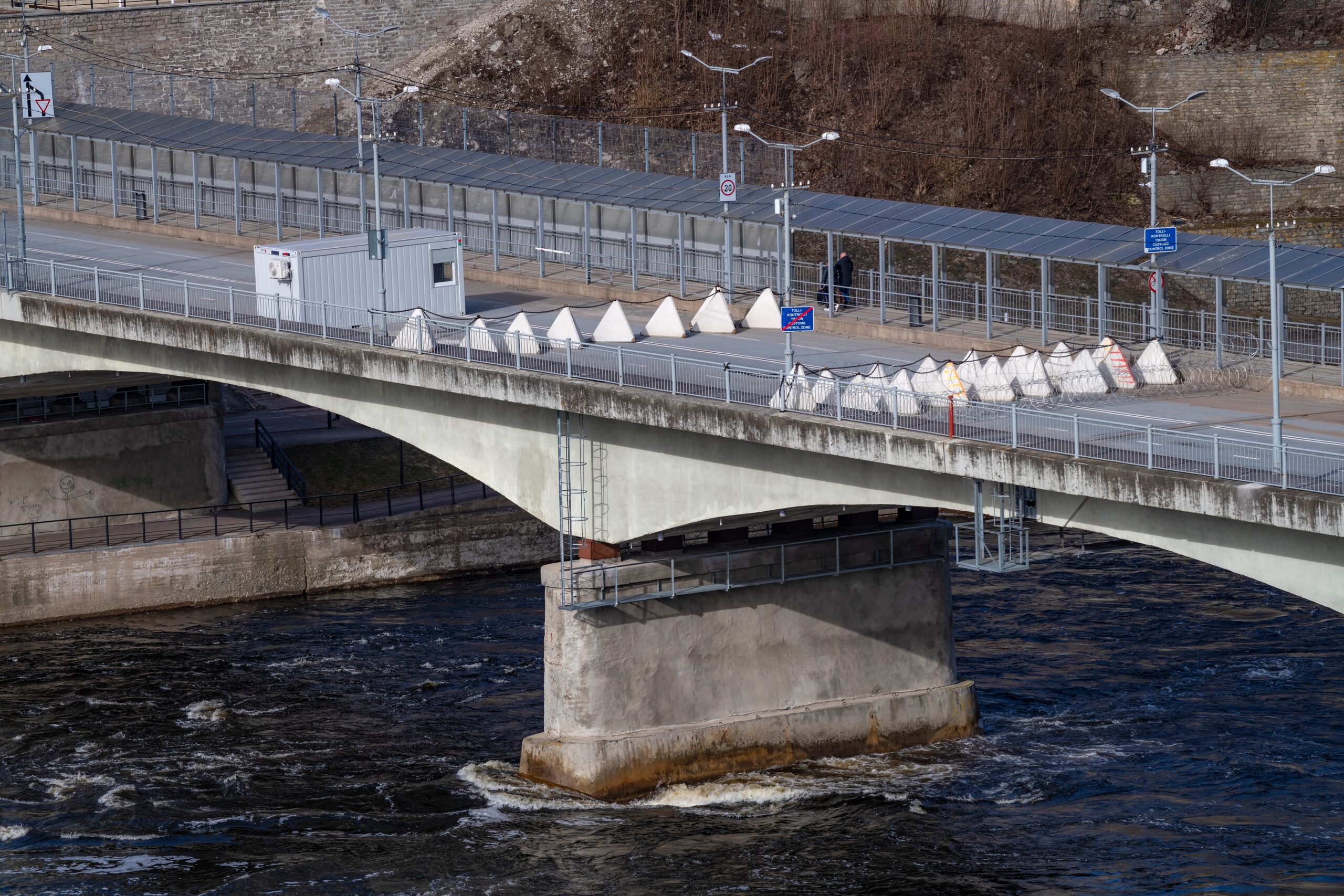DEAR READER,
Starting today, Poland will introduce border checks with Germany and Lithuania. Officials say this is a response to a surge in migration and these measures are only temporary, but it is hard to ignore the pressure it puts on the Schengen agreement, and how it forces us to reconsider the free movement within Europe. I will be thinking about this as I make my way back to Kraków this week from Berlin. More on this story in our headlines.
July 1st marked two things — that we are now officially closer to 2050 than 2000, and Poland’s EU presidency has come to an end. So what does this mean for the bloc and the country? We will be going over what has been achieved, as well as the kind of situation Poland finds itself in due to internal politics and challenges. Read more in our this week’s expert opinion.
Lastly, our partners at the Eastern Partnership Civil Society Forum have just published the Eastern Partnership Index 2025, which is a comprehensive overview of reform efforts in Armenia, Azerbaijan, Belarus, Georgia, Moldova, and Ukraine. Check it out below!
Enjoy reading this week’s “brief”!
— Giorgi Beroshvili, Editor
TOP STORIES OF THE WEEK
🇷🇺 / 🇦🇿 Tensions between Russia and Azerbaijan are rising. The deaths of two Azerbaijani nationals during a Russian police raid in Yekaterinburg triggered retaliatory arrests in Baku and diplomatic backlash. Moreover, Ukraine's military intelligence claimed Moscow is ramping up its troop levels at its Gyumri base in Armenia to reassert control in the region. However, there claims were quickly denied by Armenia. Worth noting that Armenia is also distancing itself from Moscow, instead moving closer to the EU. Relations between the two countries have been strained after Russia shot down Azerbaijan Airlines Flight 8243 on December 25th, 2024.
🇵🇱 Poland has reinstated border checks with Germany and Lithuania. Prime Minister Donald Tusk said that this is a response to rising domestic pressure over Germany’s policy of sending undocumented migrants back to Poland and a surge in arrivals from Belarus via the Baltic states. As of July 7th, Poland deployed over 1,800 officers across 65 checkpoints, where authorities say they are targeting high-passenger vehicles and those with tinted windows. Officials insist the checks are temporary and minimally disruptive. Moreover, far-right groups have begun forming "citizen patrols”, preventing returns of migrants.
🇪🇺 / 🇲🇩 The EU and Moldova held a bilateral summit. European Commission President Ursula von der Leyen and Council President António Costa visited Chișinău on July 4th for the first EU-Moldova summit. The EU pledged €1.9 billion euros ahead of Moldova’s parliamentary elections scheduled this September (you can read our analysis here). This is the largest EU package ever granted to Moldova, and it is aimed at speeding up the EU accession process. Leaders also pledged to support Moldova’s defenses against hybrid threats coming from Russia such as disinformation and electoral meddling. Side note: Von der Leyen is facing a no confidence vote this Thursday.
🇨🇳 / 🇺🇦 China privately told the EU it can’t accept a Russian defeat in Ukraine. In a four-hour meeting in Brussels, Chinese Foreign Minister Wang Yi told EU foreign affairs chief Kaja Kallas that Beijing fears a Russian loss could free the US to fully focus on challenging China, contradicting China’s public neutrality stance. China publicly calls for peace and a quick resolution, however, these private remarks reveal Beijing may prefer a prolonged conflict to keep Washington distracted.
A MESSAGE FROM OUR PARTNER
The Eastern Partnership Index 2025 is out!
The Eastern Partnership Index 2025 offers a unique and comprehensive overview of reform efforts in Armenia, Azerbaijan, Belarus, Georgia, Moldova, and Ukraine. Marking its 10th edition, the Index assesses both progress and setbacks between July 2023 and March 2025 in key areas such as democracy, good governance, the rule of law, policy convergence with the European Union, and the implementation of the Sustainable Development Goals.
EXPERT OPINION
Polish presidency of the EU is over. What’s next?

July 1st marked the end of Poland’s six-month presidency of the Council of the European Union. Readers may recall our piece as Poland was stepping in, with security clearly at the top of the agenda. Back then, we highlighted the EU’s seven security dimensions, and it was obvious that countering Russia would be priority number one.
Fast-forward to now, we can say that Poland delivered.
Now the main question is, how does the EU turn this momentum into further action and follow its rearmament plan?
Poland started its presidency with a clear motto: "Security, Europe!" Within these six months, the European Commission launched the ReArm Europe plan. This initiative aims to mobilize nearly €800 billion in defense spending over the next several years. That kind of scale hints at a possible overhaul of how the EU funds and approaches defense.
To be specific:
The bulk (around 650 billion euros) would come from member states boosting their national defense spending. According to Commission President Ursula von der Leyen, if countries increased their defense budgets by an average of 1.5% of GDP (the Commission’s proposed annual cap), they should collectively hit that figure within four years.
The remaining 150 billion euros would be financed via a new EU defense instrument, pushed by Poland. It is called SAFE, and it allows the Commission to borrow from capital markets and lend the funds to member states – not grants, but loans, focused on joint investments in major "pan-European capability domains", such as air and missile defense, artillery, drones, and counter-drone tech.
In other words, Europe is finally getting serious about defense.
Poland did not stop at EU-level though. At home, it launched the Eastern Shield, which is a 10 billion zloty (2.36 billion euros) infrastructure project to harden its 700-kilometer eastern border with Belarus and Russia. The plan includes physical barriers, bunkers, minefields, anti-tank defence, and a range of surveillance tech such as satellite monitoring, thermal cameras, and anti-drone systems. Completion is scheduled for 2028, aiming to establish a stronger defensive line on NATO’s eastern flank.
Poland’s presidency also saw action on the sanctions front. The Commission adopted its 16th and 17th sanction packages against Russia. However, a proposed 18th round (focused on Russian energy exports) stalled due to opposition from Hungary and Slovakia.
Now, as Denmark takes over the presidency, Poland wraps up its term having reshaped the EU’s defense narrative. The country, however, needs to tackle growing internal challenges. The beginning of August will see the inauguration of the new president, Karol Nawrocki, who is supported by the opposition Law and Justice party. Signs of a challenging co-habitation are already emerging as Nawrocki has begun announcing his top advisers and priorities for his administration. One stark foreign policy difference with the current government is a more hard-lined approach towards Ukraine, declaring in June that he is against Ukraine’s EU accession at this moment, but admitted Poland should still support Ukraine from a strategic and geopolitical point of view”.
Meanwhile Prime Minister Donald Tusk has called on Nawrocki to find common ground on issues related to security, defence and domestic affairs. However, the latter will definitely continue to cause strife internally, as the new president will have plenty of veto powers which the ruling coalition cannot overturn in parliament. The next elections are still two and a half years away, however there are some speculations that snap elections could come earlier.
Thus, while the EU presidency can generally be considered a success for Poland; the real challenges lie ahead.
— Giorgi Beroshvili & Adam Reichardt
DONATE TO SUPPORT NEW EASTERN EUROPE

Support independent journalism and analysis from Central and Eastern Europe! Since 2011, New Eastern Europe has delivered in-depth, local perspectives often missing from the mainstream media. Your donation helps us amplify regional voices, defend democratic values and keep the world informed. Stand with us — every contribution makes a difference.
ARTICLES OF THE WEEK
OPPORTUNITIES OF THE WEEK
The European University Institute and Scuola Normale Superiore invite young scholars to explore democratic erosion and resilience, Sept 27–30 in Cortona, Italy. Ten scholarships available for eligible applicants covering all costs. Apply by July 30th, 2025.
CEU Democracy Institute invites mid-career public leaders from six Central and Eastern European countries to join a 3-month part-time leadership program focused on democratic governance and strategic skills. Apply by August 3rd, 2025.
CARTOON OF THE WEEK

Do you want to see more of Andrzej’s drawings? Check out our dedicated gallery page featuring his cartoons here.
GOT THOUGHTS? WE WANT TO HEAR THEM
It only takes 2–3 minutes to fill out the form, and we genuinely love reading every single response. So don’t be shy — share your feedback!




